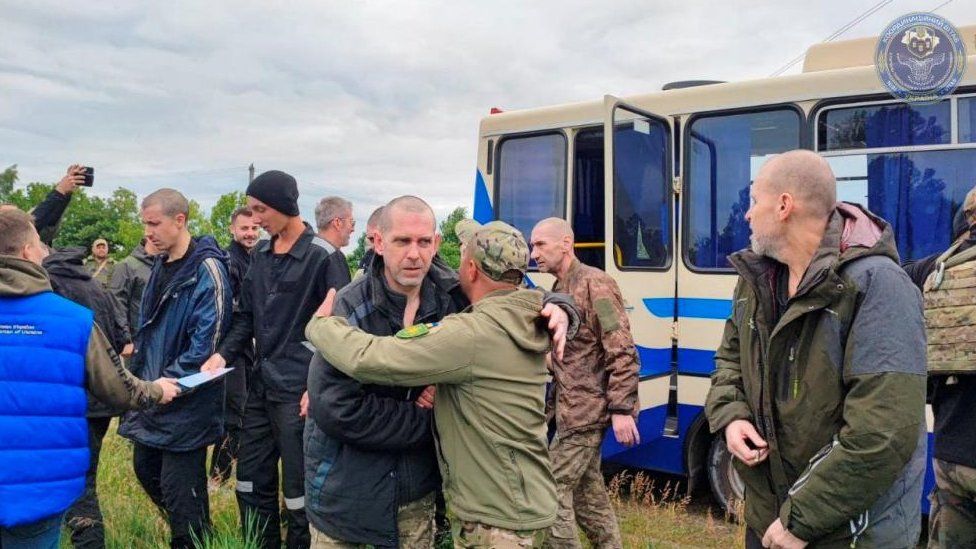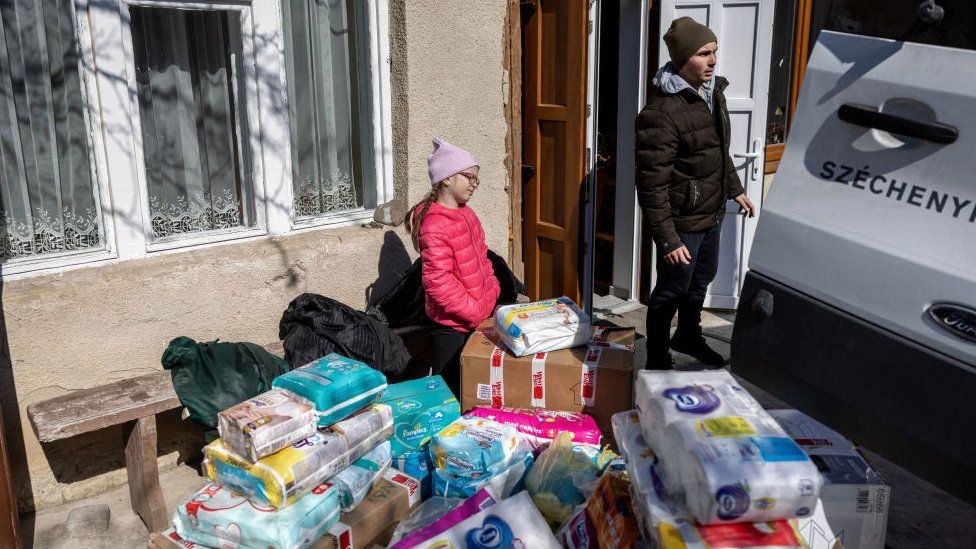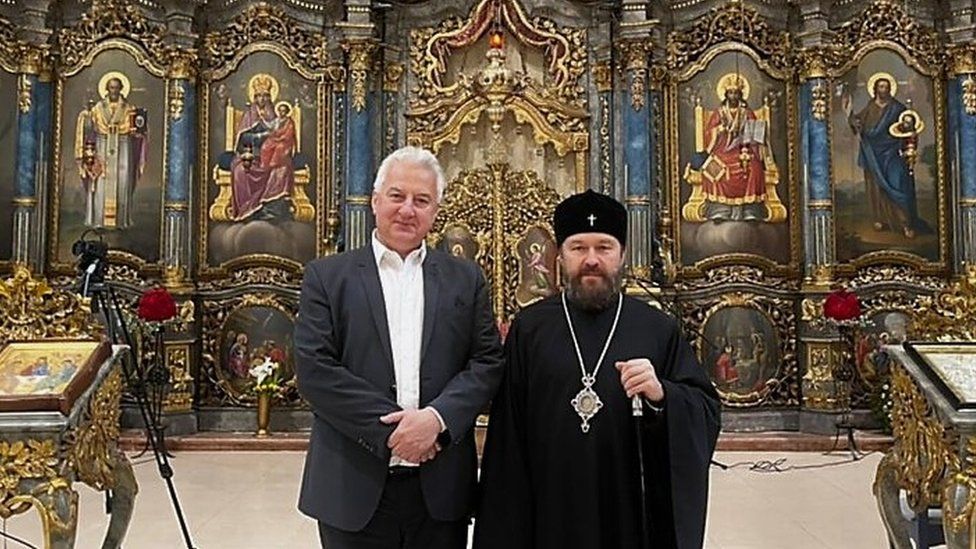Kyiv and Budapest are at odds over the arrival in Hungary of 11 Ukrainian prisoners of war who had been released by Russia.
It's unclear who they are, how they were apprehended, and what transpired after they were taken into Hungary.
Three of the men, according to Ukraine, have since been released and have gone back home.
The two nations are still at odds, with Hungary's foreign minister accusing his Ukrainian counterpart of leveling unfounded charges.
We should celebrate the freedom of the 11 people, Peter Szijjarto argued, rather than making "lies attacks and getting personal.".
Throughout the war, there have been strained ties between Hungary and Ukraine. Only Prime Minister Viktor Orban of Hungary has remained in contact with Russian President Vladimir Putin.
The release of the Ukrainian soldiers—all of whom are of Hungarian descent—into Hungary could have improved relations, but it has instead strained relations, and diplomats are regretting a missed opportunity.
The fact that both foreign ministries were kept in the dark about this case can be used to partially explain the confusion that has surrounded it.
The relationship between Zsolt Semjen, the deputy prime minister of Hungary, and Patriarch Kirill, the head of the Russian Orthodox Church, was crucial to their rescue. The Hungarian Maltese Charity service played a significant role in the prisoner release as well.
According to a statement released by the Russian Patriarchate on June 8th, the Church's mediation resulted in the prisoners of war being sent to Hungary "within the framework of inter-church cooperation, at the request of the Hungarian side.".
According to reports, the soldiers are from Transcarpathia, a region in western Ukraine where there are significant populations of ethnic Hungarian, Romanian, and other minorities.
The prisoners had been returned home the next day, according to Mr. Semjen's website, which he credited to his "human and patriotic duty.".
The Ukrainian army has received a large number of men from Transcarpathia who have either volunteered or been drafted. Others have crossed the mountains on Ukraine's western borders or swum the River Tisa to escape the war.
The Austro-Hungarian empire included Transcarpathia up until 1920. The men's refusal to return to Ukraine may be a plausible explanation for the information gap, but no official statement has been made to support that theory.
According to Oleh Nikolenko, a spokesman for the Ukrainian foreign ministry, "all efforts by Ukrainian diplomats over the past days to establish direct contact with the Ukrainian citizens have failed.".
This suggests that the Hungarian authorities' claims about the purported freedom of Ukrainian defenders in Hungary are untrue, along with information from the relatives of some of them. They are actually segregated. ".

Retaliating, the Hungarian government.
The minister in charge of the prime minister's office, Gergely Gulyas, insisted that "the Ukrainian government was informed.".
He even questioned whether they should even be considered prisoners of war given that they were set free in Russia before being given to Hungary.
"We don't check or monitor them; they are free to leave the country whenever they want. ".
On Tuesday night, Mr. Nikolenko posted on Facebook that the Ukrainian embassy in Budapest had been successful in bringing back three of the Ukrainians and that it was continuing to take proactive steps to bring the other men who had been "taken out of Russia to Hungary" home.
The verbal conflict between the two neighbors began in 2016, when a number of Ukrainian laws severely curtailed the teaching of Hungarian and other minority languages in Ukrainian schools, including Russian.

The Orban government has angered Kiev since Russia's full-scale invasion of Ukraine by severing ties to the West's support of the country.
Budapest has provided substantial amounts of humanitarian aid and assistance to thousands of Ukrainian refugees, but it has declined to join other EU and NATO nations in arming Ukraine.
The only current EU politician to attend the International Economic Forum last week in St. Petersburg was Hungary's Foreign Minister Peter Szijjarto, demonstrating how close ties with Russia are.
Sergei Lavrov, the foreign minister of Russia, and the leaders of the Russian nuclear and gas companies, on which Hungary's energy supply is based, are regular subjects of his conversations.
Since February of last year, Russia and Ukraine have exchanged prisoners on occasion. However, last week, 22 Ukrainians were put on trial in southern Russia for allegedly being members of a "terrorist organization.".
According to Ukraine, mistreating combatants—including women—constituted a war crime and was abhorrent.







